

Modernity as Fragmentation (Revolutionary Aristotelianism Part 4)
by W.D. James | Apr 24, 2024
Riders on the storm
Riders on the storm
Into this house we’re born
Into this world we’re thrown
Like a dog without a bone
An actor out on loan
Riders on the stormi
– Jim Morrison, Riders on the Storm
In the lines above, Jim Morrison lyrically presents an ‘existentialist’ take on human existence. We’re ‘thrown’ into the world. It’s a fundamentally absurd situation: we seek meaning, but the cold universe revealed by science offers no meaning. We’re ‘riders on the storm’, trying to create values for ourselves and use them to make some sense of life, but there are no safety nets: live on the highwire as best you may; the abyss opens beneath you.
Such a solution is completely untenable for the moral philosopher Alasdair MacIntyre. He was born in Scotland in 1929. In his childhood, he became acquainted with old-style skilled craftspeople in his native land and in Ireland. The crews of fishing boats plying their traditional trade, and operating in intimate cooperation with one another, have remained a model of what a sound community might be like, in his view.
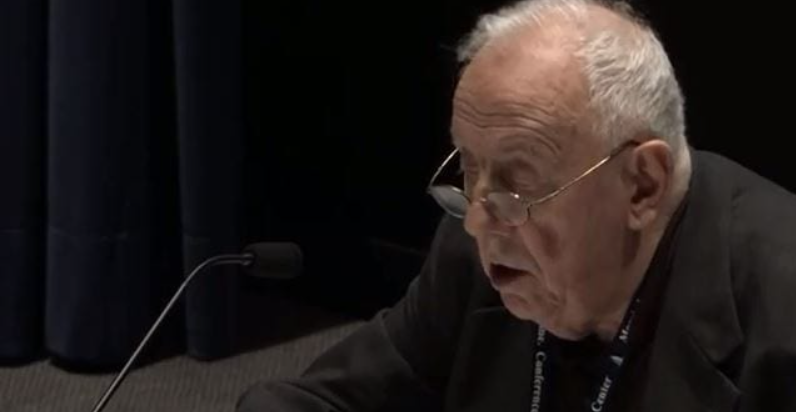
MacIntyre became a Communist in early adulthood, but switched over to a form of Trotskyism in the early 1950s when the abuses of Stalinism became apparent. Later, in the 1960s, he was one of the founders of the ‘New Left’ in England, editing a couple of important journals in that movement. In the 1970s he surprisingly moved to the United States and eventually converted to Catholicism. He has taught and lectured at a number of institutions including Oxford, Princeton, Duke, Vanderbilt, Yale, and Notre Dame, among many others.
With the publication of After Virtue in 1981, he reintroduced a version of virtue ethics and revolutionized academic philosophy in the process. His thinking and writing since that time represents an ever-deepening reappropriation of Aristotle into academic philosophical discourse. He would typically be considered to operate at the very highest levels of recent academic thought, especially in the areas of ethics and political philosophy. Unfortunately, MacIntyre, at least in terms of how he writes, is very much in the modern Anglo-American style of philosophy which tends to be rather precise, arid, and has difficulty breaking out of its academic boundaries. In this and the following essays I’ll attempt to present some of his ideas in an accessible manner and show why he is so relevant to our contemporary quandaries.
Fragmented Ethics
At the opening of After Virtue, MacIntyre asks us to imagine a situation in which the natural sciences suffer a catastrophe. In his scenario, an enraged public holds the natural scientists responsible for a deepening environmental crisis and many scientists are killed, labs burned, etc…. Eventually, a few shards of what science has revealed about the world are collected up here and there. Some propositions of Euclid, some bits of physics, maybe a few shards of evolutionary biology. These salvaged fragments are held in high esteem and sort of made into totems.
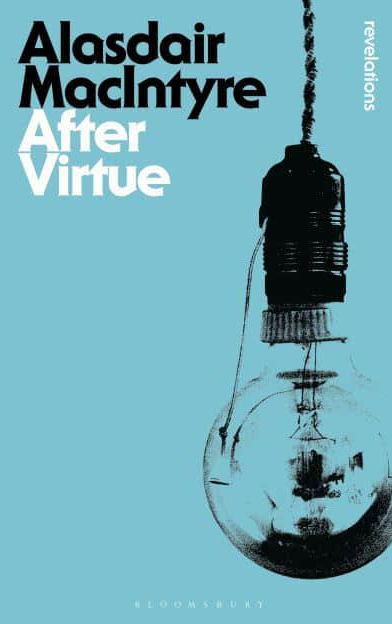
Ultimately people want to make sense of the material world again, and they have no recourse but to fall back on these few truths. They attempt to put them together, but the result is far from satisfying. The problem is that the practice of science has ended. The living tradition of ‘doing science’ is broken. The remaining elements are recognized as valuable, but they aren’t living. You can’t put Humpty Dumpty back together again. Imagine how such a world would be different from the world we are used to.
He then drops the bombshell of stating that this is analogous to what has happened to our moral discourse. Once, as a civilization, we pretty much had a shared tradition of moral thought, but we intentionally destroyed that, then figured out you really can’t get along with without morality, but are not able to reassemble a coherent and shared moral picture of the world. He laments, “There seems to be no rational way of securing moral agreement in our culture.”ii
On his account, we moderns are forced into a position of ‘emotivism.’ This is the basic assertion that values are personal and subjective and ‘what might be right for you might not be right for me.’ Morality is about what we feel. The problem is we often feel different things and if our moral vocabulary is not subject to rational debate, we aren’t left with moral means to work through our differences. Ultimately it devolves to issues of power: we don’t agree, but we who hold one view can wield political power to get our wills imposed…until we can’t. Either way, ethical disagreements don’t get worked out through ethical discourse. As an approach to ethics, “Emotivism thus rests upon the claim that every attempt, whether past or present, to provide a rational justification for an objective morality has in fact failed.”iii
MacIntyre wants to show that just as there was a sociological basis to living scientific inquiry, which was wiped out in his hypothetical example, there is a sociological basis to moral reasoning which has in fact been wiped out, but which might be reconstituted. He observes that, “In many pre-modern, traditional societies it is through his or her membership in a variety of social groups that the individual identifies himself or herself and is identified by others.”iv
It’s important to get the distinction he is drawing here. In our modern world, we are encouraged to think of ourselves as separated individuals. More importantly, our societies and polities think of us in this way. MacIntyre’s assertion is that in pre-modern societies people were thought of more as persons than individuals. A ‘person’ is the individual plus their social relationships. The modern world has “bifurcated” our existence between who we are as individuals and the social relationships, which are held to be rather arbitrary, and our broader society. His fundamental claim is that if we separate out our individual selves from our larger social context we cannot reason together morally about the things that are social by nature. As modernity erodes our shared social existence it also erodes individual identity and the capacity for a shared moral framework.
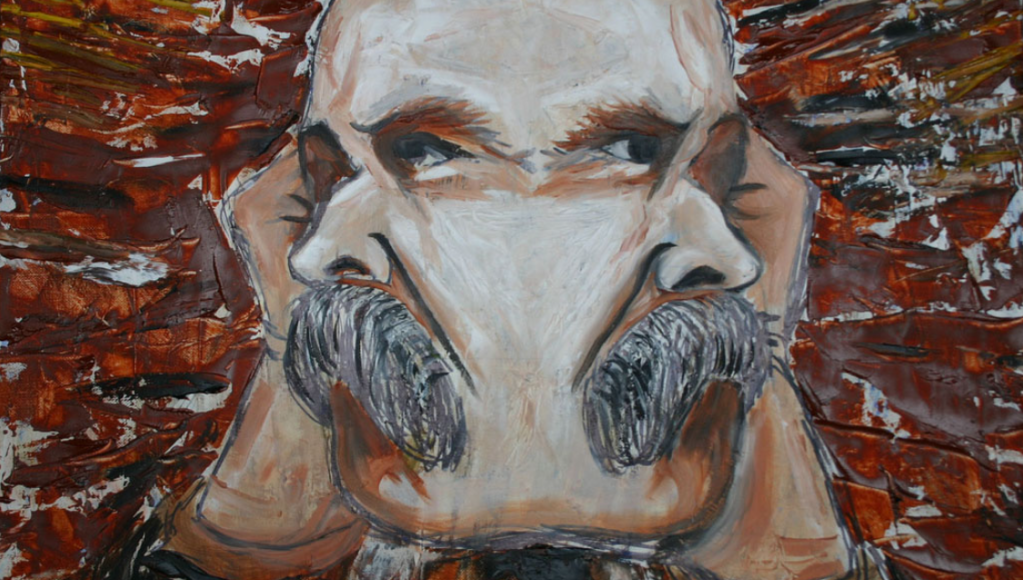
Weber, Nietzsche, or Aristotle
Our modern world, he asserts, offers us basically two alternatives. The modern State and the capitalist Market have eradicated all that is local, specific, and good. In the wake of that we may be Weberians or Nietzscheans. Max Weber is known as the “iron cage of bureaucracy” guy. His argument was that as organizations become ever larger, more and more of life would be subsumed under the auspices of rationalized bureaucratic administration. He saw that this was dehumanizing but thought it our fate. This is the world where ethical concerns are written into government administrative codes (the parts of the law that were never passed by legislatures but are written by the governmental agencies charged with implementing legislative acts), corporate ethics codes, and things like that. The organization has certain things it means to achieve. It needs to set the boundaries of what is and is not acceptable behavior. Ethical concerns are reduced to rules whose ultimate legitimacy rests on nothing more foundational than the rules someone wrote down. ‘Should I do this?’ is reduced to ‘am I allowed to do this?’ For instance, here the intricacies of romance and seduction are reduced to ‘continuous consent.’v
Alternatively, we might be Nietzscheans. On MacIntyre’s account this is an authentic option, but it just doesn’t work. He breaks down that option along the following lines: “The underlying structure of his argument is as follows: if there is nothing to morality but expressions of will, my morality can only be what my will creates. There can be no place for fictions such as natural rights, utility, the greatest happiness for the greatest number. I myself must now bring into existence ‘new tables of what is good.’”vi How would I do that exactly? Even if I succeed in somehow conjuring values out of my will, you will be doing the same, and so on and on. There are no shared bases for holding values in common. Except, that is, power. For Friedrich Nietzsche ultimately the will of those who can rise above the “herd” is to define the values of the many: “the will to power” is one of his central concepts.
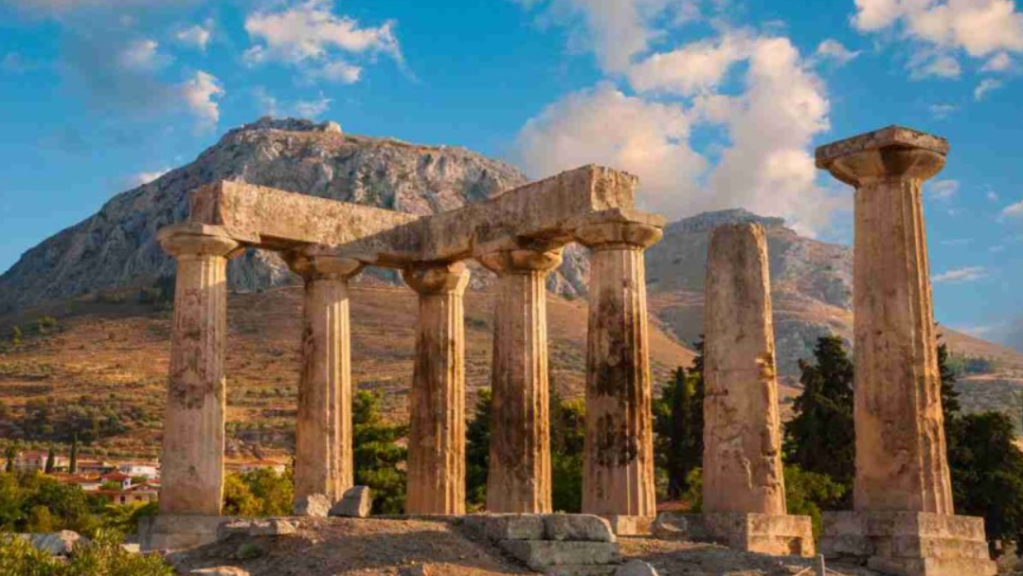
Instead, MacIntrye advocates a retrieval of pre-modern moral discourse. Specifically, Aristotelian discourse. He observes: “Within the Aristotelian tradition to call x good (where x may be among other things a person or an animal or a policy or a state of affairs) is to say that it is the kind of x someone would choose who wanted an x for the purpose for which x’s are characteristically wanted…. To call something good therefore is also to make a factual statement.”vii Think of our example in a previous essay: Sally the Thoroughbred was ‘good’ because she did what we want thoroughbreds to do. Because of its ability to discuss values as facts, “Aristotelianism is philosophically the most powerful of pre-modern modes of moral thought. If a premodern view of morals and politics is to be vindicated against modernity, it will be in something like Aristotelian terms or not at all.”viii
He notes that on the original formulation of Aristotle, and even more so on the formulation of the medieval interpreter of Aristotle, Thomas Aquinas, the issue of morality and virtue was situated within an overarching “cosmic” scheme which assured that as moral reasoning occurred from a bottom-up perspective, it was assumed this would ultimately coalesce universally. In this work, MacIntyre expressly sets out to reinterpret Aristotle’s moral theory without reference to his teleological biology. He accepts that that may be a bridge too far for we moderns. As a result, his formulations will be somewhat limited in their completeness. MacIntyre later admitted this as a philosophical error on his part and worked to bring biology, and hence human nature, into the picture again. We’ll see how that works in the sixth essay of this series.
Phronesis
MacIntyre affirms that “the political community as a common project is alien to the modern liberal individualist world.”ix Central to the functioning of a community thus conceived is the ability for its members to engage in genuine dialogue on matters of ‘practical rationality’, which includes our morality. Aristotle had termed the sort of wisdom represented in good practical reasoning ‘phronesis’. The person who possesses phronesis knows what is due them (the central knowledge required for the practice of justice). More broadly, it refers to the ability to reason about particular cases: what is due to people in the particular circumstances we currently find ourselves in?
It is the inability of modern conceptions to access moral facts which precludes the ability of modern individuals and modern societies from actually engaging in moral reasoning. So, when next time we look in detail at exactly how he reformulates Aristotle, we can keep in mind that it is reinvigorating our ability to reason together about a shared morality that will be driving his theoretical project.

The Spirit of Association
In the 1830s, Alexis de Tocqueville, a French aristocrat and one of the founders of modern sociology, set about to understand America. He felt confident that ‘democracy’ was pretty much fated to increase in the modern era (as opposed to monarchy or aristocracy). His concern was that popular revolt in the French Revolution had quickly turned into The Terror and led to the imposition of authoritarian rule by Napolean. However, America seemed to be building a relatively stable and prosperous democratic society. What was different?
He would publish his findings as Democracy in America. Essentially the difference he discovered was that France had largely lacked a set of intermediary institutions between the mass of individuals at the bottom and the state on top. This led to instability and the ability of demagogues to motivate the masses to all sorts of destabilizing actions. American culture, however, was characterized by the “spirit of association”. Though it was already a large country, the national government was weak. Most politics were carried out at the township and village level. Americans, still pushing the boundary of the frontier westward, typically did not sit about and wait for ‘the government’ to do things for them. If they wanted to educate their children, they built a one-room building and hired a teacher. If they wanted access to books they started a library, usually by subscription. If they wanted some religion, they built a wooden church and hired a preacher, or possibly paid part of the salary of a circuit-riding preacher who would ride between a number of churches, preaching as he arrived at each.
Of course, those intermediary institutions have pretty much become huge operations or have had their functions subsumed by the state. Americans are no longer ‘joiners’. We went Weberian long ago. However, even in my childhood years, the culture of self-governance was not dead. It was not uncommon for a person with just a high school education to run a business or be employed as a skilled worker. Probably they served in some office of their local church, or played the organ, or otherwise had a respected social role there. They probably belonged to a couple of civic associations: a fraternal order, a charity, or what not. They knew (and had known their whole life) the township commissioners and could expect to go talk to them and get something done if they had a zoning issue or something along those lines.
This is all largely past. There is the mostly unassociated lot of us and the state and its administrative agencies. And big corporations. This is the apocalypse MacIntrye sees as having undercut our culture and communities which makes shared moral reasoning among us impossible.

Subscribe to Philosopher’s Holler
i It is an amazing song: Riders on the Storm – The Doors HD (youtube.com)
ii Alasdair MacIntyre, After Virtue, 2nd ed., University of Notre Dame Press, 1984, p. 6.
iii Ibid, p. 19.
iv Ibid, p. 33.
v If you’re fortunate enough to not be familiar with such things as campus codes of sexual behavior, look it up. I’m certainly not advocating horrible behavior. But could we be a little nuanced in our thinking about how people actually interact?
vi Op. cit. p. 114.
vii Ibid, p. 59.
viii Ibid, p. 118.
ix Ibid, p. 156.




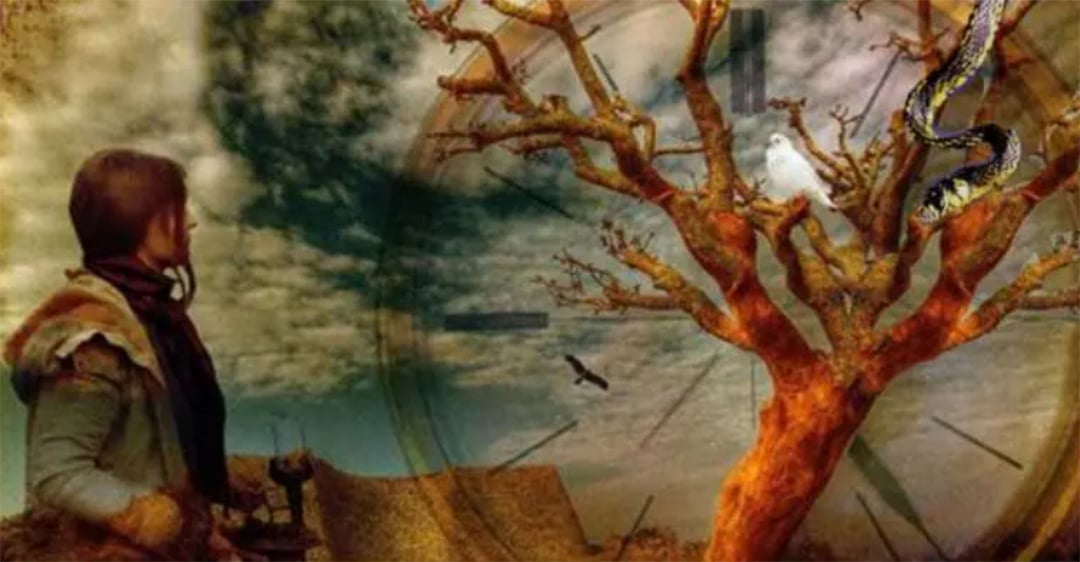
0 Comments